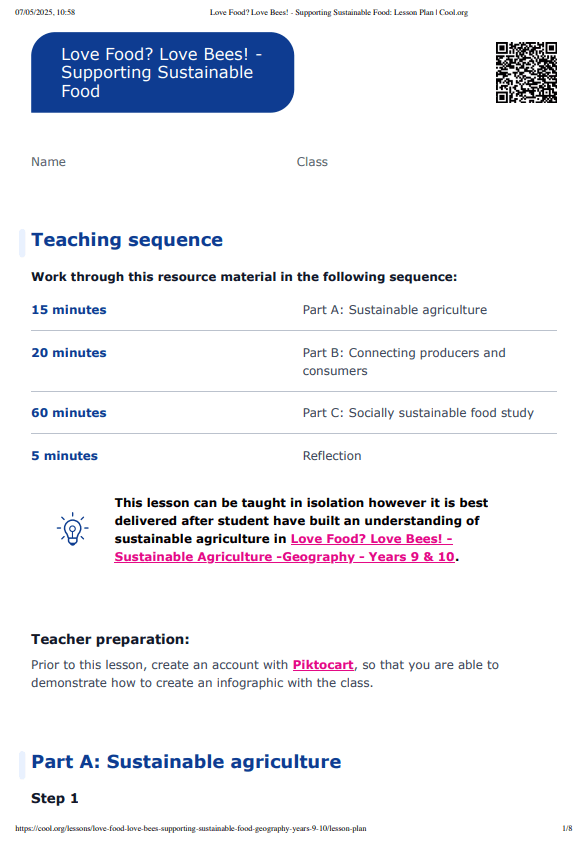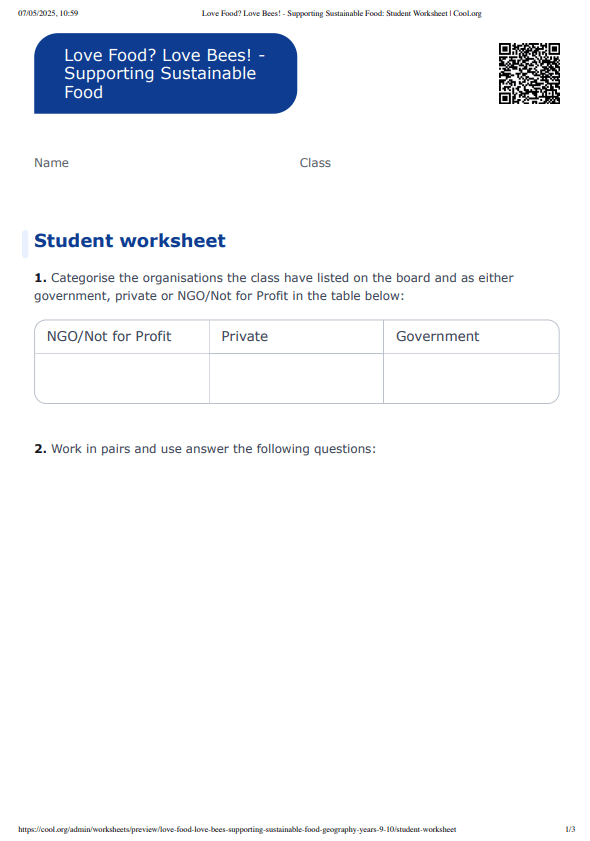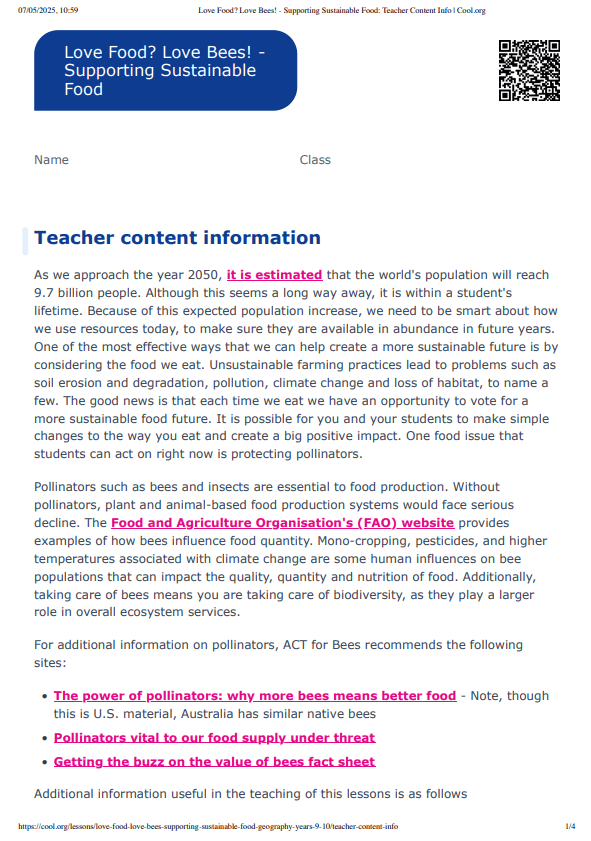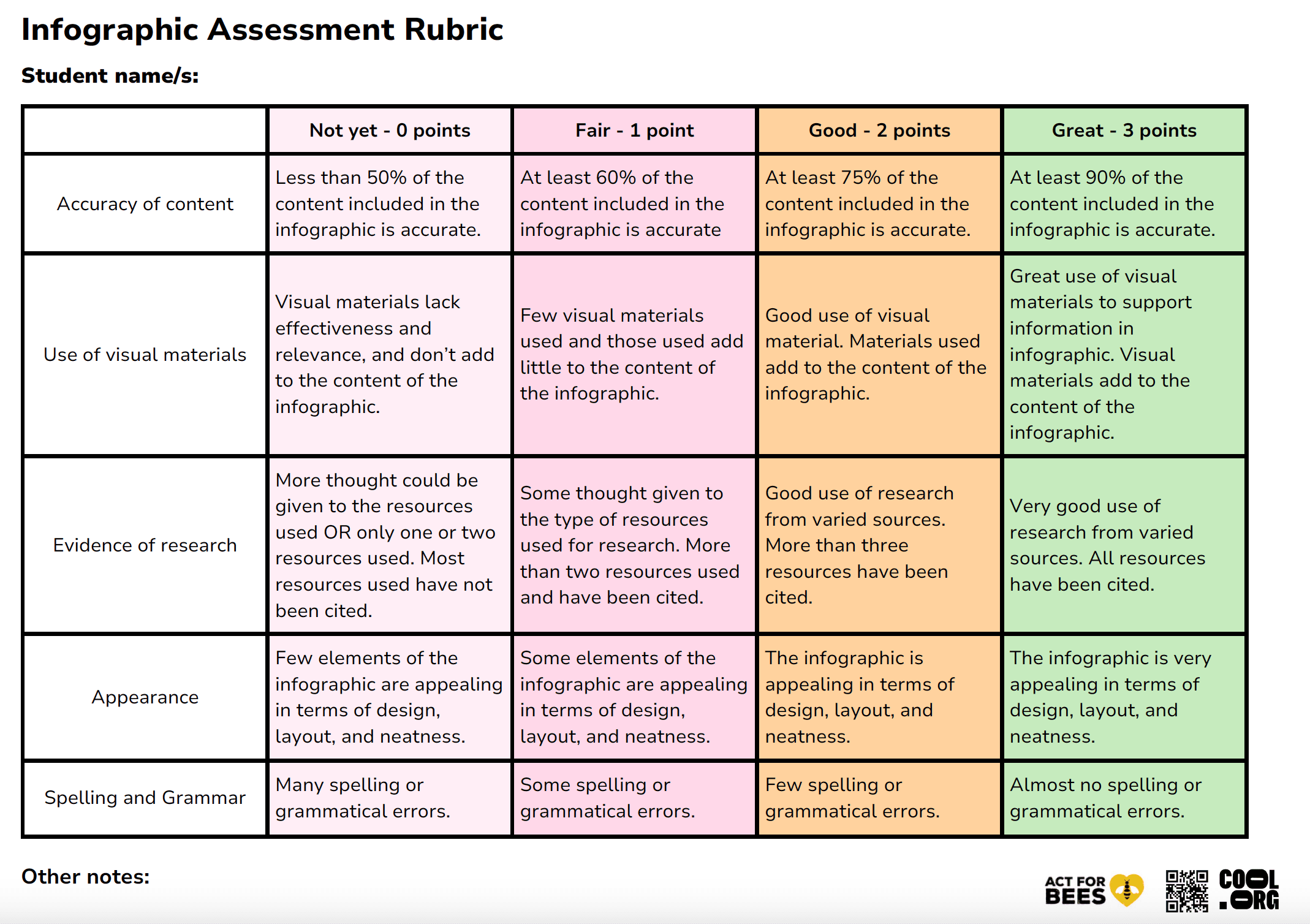
Supporting Sustainable Food
Lesson5 of 6 in this unit
SecondaryYear 9 - 10Humanities and Social SciencesGeographyEnvironmentalBiodiversityLand ManagementSustainability
Summary
Lesson Guides and Printables
Lesson Plan

Student Worksheet

Teacher Content Info

Infographic Assessment Rubric
